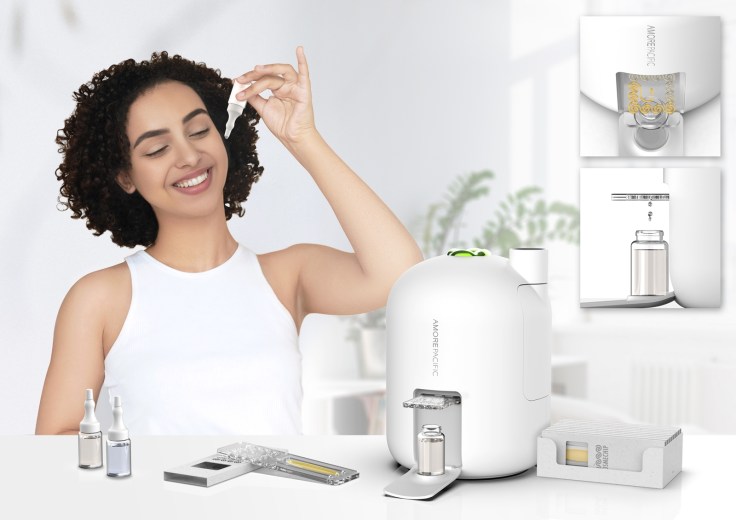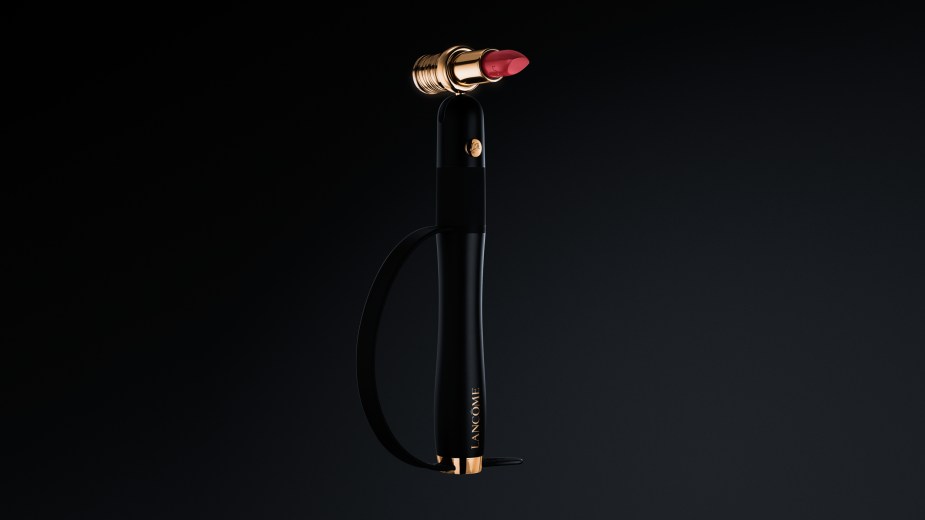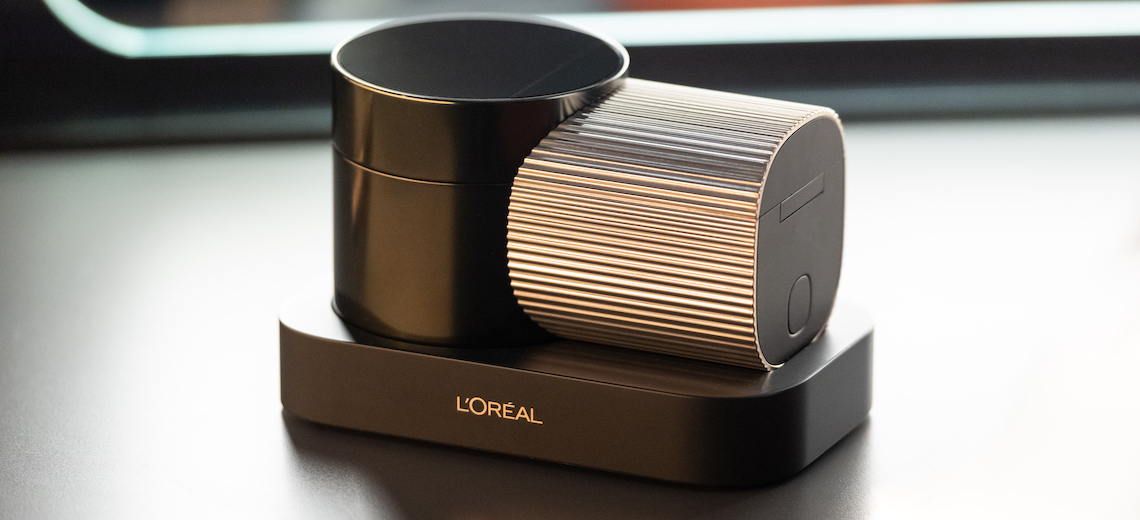Secure your place at the Digiday Media Buying Summit in Nashville, March 2-4
CES 2023’s beauty gadgets: AI, personalization and robot makeup among items unveiled

This story was originally reported on and published on our sister site, Glossy.
At this year’s Consumer Electronics Show in Las Vegas, beauty devices are once again joining smart TVs, laptops and home robots on the convention floor.
With major companies including L’Oréal Group and Amorepacific regularly unveiling new technologies, the beauty tech presence remains constant at the Consumer Technology Association’s annual event. Taking place from January 5-8, this year’s show spotlights beauty launches that use AI technology to tap into themes including personalized product mixing and computerized makeup application.
K-beauty conglomerate Amorepacific received the CES Innovation Award for the fourth year in a row this year for two of its launches focused on customized products. Its Authentic Color Master by Tonework allows users to scan their face. Using AI facial recognition technology, it can that create personalized foundation and lip shades with its robotic arms. Meanwhile, the brand’s at-home Cosmechip device creates customized skin care by allowing users to enter dry “chips” with skin-care ingredients and water into the apparatus to create skin-care products on the spot.

“Global customers are now creating ‘hyper-personalization’ and ‘me-centric’ trends, and the bespoke beauty market has great growth potential backed by remarkable development of beauty technologies,” said Park Youngho, head of Amorepacific’s R&I Center.
The CES launches of L’Oréal Group, meanwhile, focus on automatic makeup application with two prototypes announced on January 3. The company’s handheld HAPTA device offers computerized lipstick application for people with limited hand and arm mobility.
“For L’Oréal, the future of beauty is inclusive. And this future will be made more accessible by technology,” said Nicolas Hieronimus, CEO of the L’Oréal Group, in a statement about the device.
The technology used in the device was created by Alphabet Inc.’s health tech company Verily. It was first created by Verily for the company’s Liftware dining utensils, which were designed to automatically stabilize when being used by people with hand tremors and limited mobility. The lipstick applicator uses the same smart motion controls and provides customizable attachments to improve the range of motion.

The company also released a prototype for eyebrow makeup application called Brow Magic. Users scan their face with L’Oréal-owned AI beauty app Modiface, and select the shape, thickness and effect of their ideal brow. They can then hold the device up to their face, where 2,400 nozzles “print” 1,200 drops per inch of eyebrow makeup to create the look. Using technology from non-permanent tattoo startup Prinker, the gadget’s eyebrow art can be washed off with regular makeup remover.

Some beauty prototypes unveiled at CES will make their way to the market. L’Oréal Group will make its HAPTA device available through Lancôme this year, and the Brow Magic tool is “expected to launch in 2023,” according to the company’s press release.
Amorepacific, meanwhile, has deployed multiple CES-unveiled technologies in stores over the years. Customers can already try out the Tonework technology at store locations in Seoul, including its Laneige showroom in the Myeongdong shopping neighborhood, its Etude store in Sinchon, its futuristic Amore Seongsu flagship store and the Amorepacific headquarters. Park said the company is focused on “broadening the customer touch points for the customizing services, in collaboration with our brands.”
CES prototypes that make their way to the market have been met with mixed results. Procter & Gamble’s $600 Opte skin-care apparatus, for example, is shuttering its operations after hitting the market in 2020. First unveiled as a prototype at CES two years earlier, Opte initially received buzz as the winner of the CES 2020 Innovation Award, multiple Allure Best of Beauty awards and a Time Best Inventions award.
Opte’s website states that the company has “decided to pause” its business, and its $99 serum refill kits will be available until January 15, 2023. The brand’s Instagram account is receiving comments from angry consumers who paid a hefty price for the gadget. One commenter noted they just bought the device last year, and another stated that “it isn’t right” to end the refills because “it’s an expensive tool.”
L’Oréal Group, which has been launching prototypes at CES since the founding of its Global Technology Incubator in 2012, has also brought previous years’ products to market. Its $299 YSL Beauty custom lipstick maker is listed on the brand’s site, but is currently not available for sale. Neutrogena’s MaskID system for customized sheet masks, meanwhile, was unveiled at CES in 2019 and set to la
More in Marketing

Thrive Market’s Amina Pasha believes brands that focus on trust will win in an AI-first world
Amina Pasha, CMO at Thrive Market, believes building trust can help brands differentiate themselves.

Despite flight to fame, celeb talent isn’t as sure a bet as CMOs think
Brands are leaning more heavily on celebrity talent in advertising. Marketers see guaranteed wins in working with big names, but there are hidden risks.

With AI backlash building, marketers reconsider their approach
With AI hype giving way to skepticism, advertisers are reassessing how the technology fits into their workflows and brand positioning.








